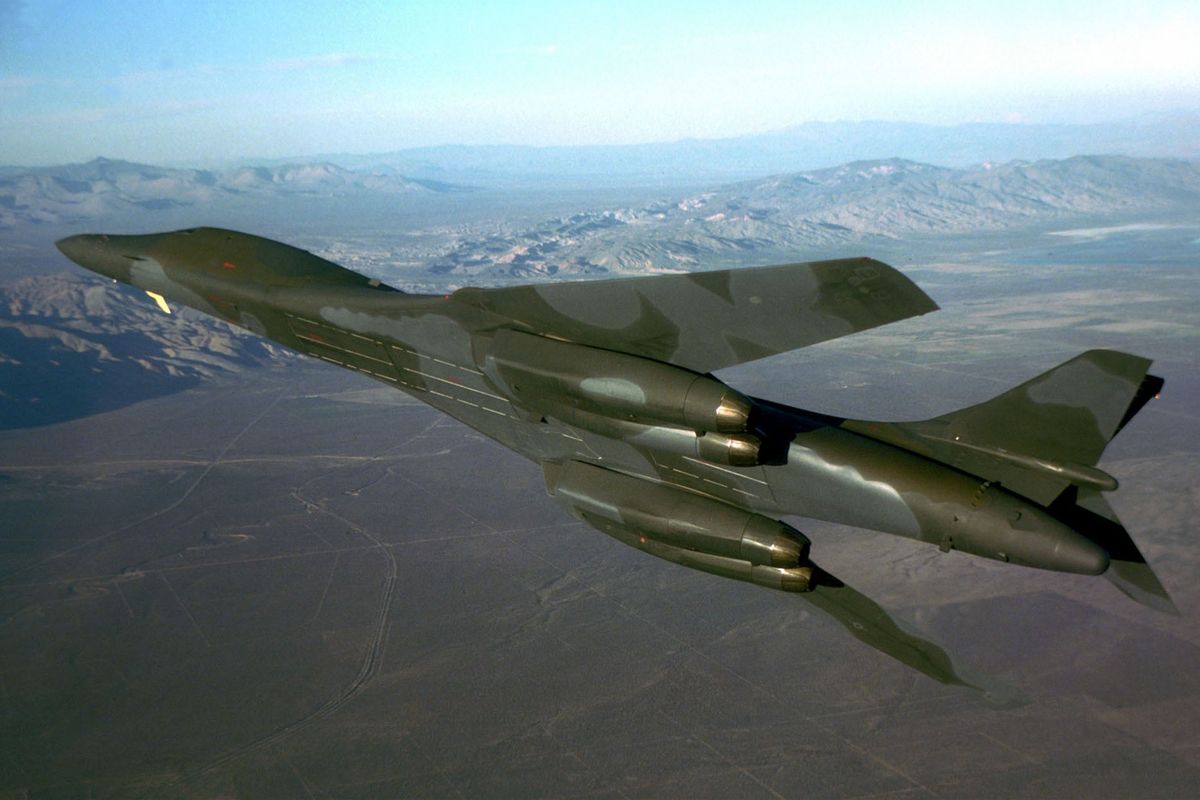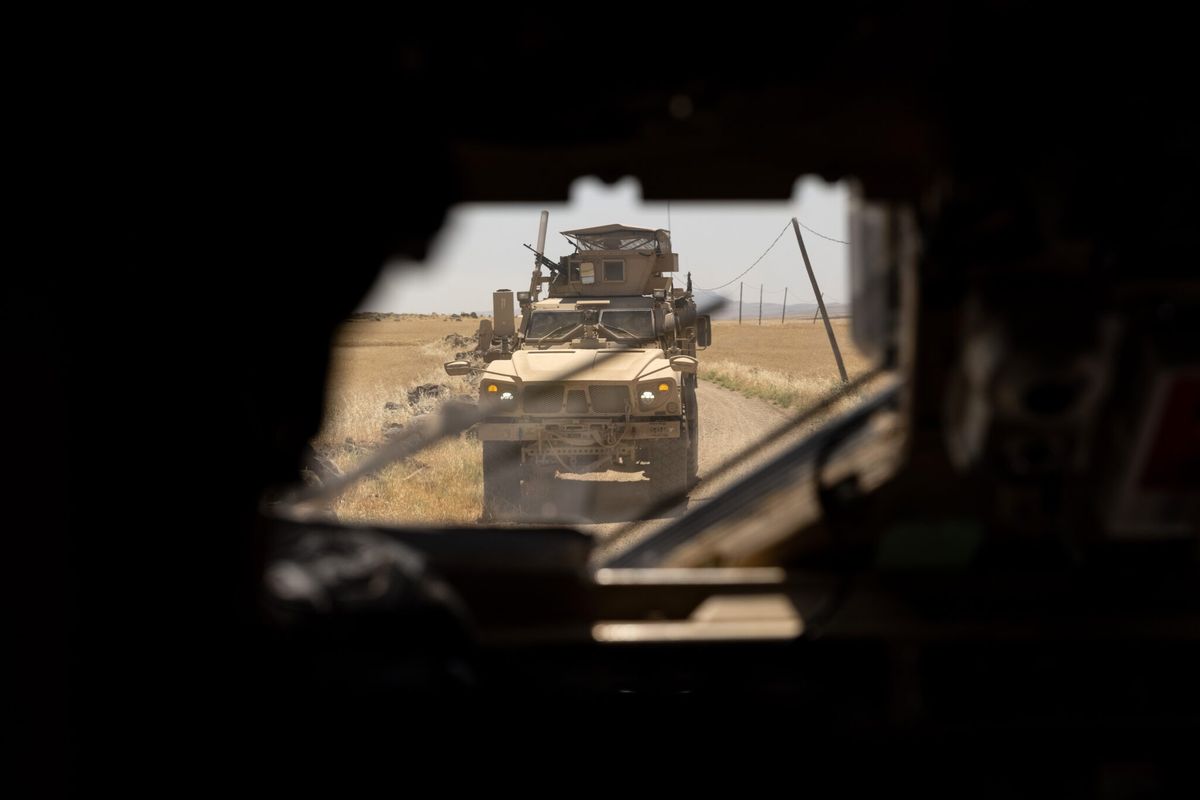After the United States launched airstrikes against a Syrian airfield late Thursday night, The Cipher Brief reached out to Rob Richer, the former Associate Deputy Director of Operations at the Central Intelligence Agency and Cipher Brief Network Expert, to discuss the message the Trump Administration has sent to the Assad Regime. He told us that the targeted strikes will be welcome news in the region and signal to Damascus, Moscow and Tehran that “the game has changed.”
The Cipher Brief: What is the significance of the target chosen in Syria? Will a strike like this change the dynamic on the ground?
Rob Richer: First of all, it was exactly the right target - the alleged [area] where the chemical weapons attack originated. Because of the coverage the U.S. has in the area, we knew where those aircraft came from.
The Administration went after military targets there – the planes, hangers – and they did not go after barracks. It was the most appropriate target and in many ways the less risky one. They gave advance notice of at least an hour, from what I understand, to the Russians, who of course told the Syrians, who moved any aircraft that they could out of there.
For the most part, it was symbolic, but it does show that this President and his Administration are taking the use of those chemical weapons seriously.
TCB: What message does it send to the Assad regime?
Richer: The biggest message it sends is that, in terms of this Administration compared to the last, the game has changed. That’s not a political judgement, it’s just what it says on the ground. As you remember, in the previous Administration, twice we drew a line in the sand, twice the Syrian military used chemical weapons, and twice we blinked. In this case, they used them once and within a very short period of time, there was a limited, very strategic attack carried out, which went after the place where the attack originated.
What it’s saying is that we are going to go against those who do things, but we are not going to do it in a huge manner, and we’re not going to overact.
It’s kind of like going after terrorists. You don’t kill a village to get one terrorist, you go after the terrorist himself. And that’s what they did here. They went to the place this originated. The Administration’s message was that we are going to be strategic, we are going to be tactical, and we’re going to be focused.
TCB: What signal does this send to Russia? What about Iran?
Richer: From what we’ve seen of the Russians, they understand the rules, so I don’t believe the Russians would have knowingly sanctioned that type of operation. I do not believe they knew.
In fact, it is still unclear if Syrian President Bashar al-Assad knew himself. When chemical weapons were first used in Syria during the Obama Administration, they were fired by an area commander. We could never prove that Assad gave that order. The Syrian military, particularly now, is still not the most closely linked to chain of command because of the various war zones.
I don’t think the Russians would have said, “Yes, please use these chemical weapons,” because the Russians are in coordination with the U.S. right now to de-conflict aircraft and they know that we would know where the planes came from.
TCB: What should the U.S. do next?
Richer: We need the Russians to get rid of ISIS. We’re fighting ISIS on a number of fronts, but we also need the Russians to fight them. And they are carrying some part of that fight, they are coordinating with us, and there is some basic intelligence sharing. We don’t want to completely alienate the Russians in this regard.
But this move basically told everyone that the chemical attack was a game changer. That is, you use that type of stuff again, we will react. We put everyone on notice that there is a new sheriff in town. But we also put them on notice that no matter what the Syrians think about their air defense, they are vulnerable.
What was sent here was a very strategic and focused response to an act of barbarity. To be honest with you, most of the world seems to be supporting it. Even the Russians have been muted in their response.
TCB: So how will this be received in the region?
Richer: It’s worth remembering that the Gulf countries, Saudi [Arabia] and the surrounding countries, want Assad out of there. He’s caused one of the greatest refugee floods, recent economic turndown, and some horrific atrocities, many of which we are just finding out. In many ways, he also let ISIS have its way in Iraq. So I wouldn’t say countries in the region are necessarily happy that this was done, but I would say that they appreciate what they’ll see as a stronger U.S. [engagement] in this conflict, a U.S. that may actually help them against ISIS, and that will help them with other issues in the region, particularly the need to take a stand against Iran, which is their greatest concern.
From what I’m hearing from the people I deal with in the Middle East, they are saying that this is an indication that circumstances have changed and maybe the U.S. will take some strong steps in terms of Iran, their most critical issue in the region, and also push the Syrian war to a resolution a little more quickly.












